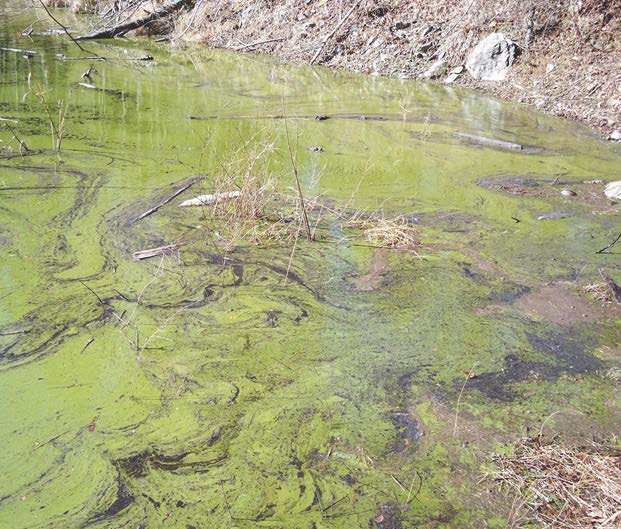
North Carolina Department of Environmental Quality officials are cautioning people to stay away from discolored water as summer temperatures set in this holiday weekend.
As of last Tuesday, the department’s Division of Water Quality had received reports of 11 confirmed or suspected algal blooms, two of which contained cyanobacteria, or blue-green algae.
Supporter Spotlight
Cyanobacteria are found in freshwater, estuarine and marine waters, and while they are important to aquatic ecosystems, some are able to produce cyanotoxins. These highly potent toxins can pose a host of health risks including abdominal, neurological and skin issues for people, pets and aquatic species.
While algae occur naturally in all waterbodies, environmental conditions such as an increase in nutrients, higher temperatures, increased sunlight and low to no water flow can spur rapid algal cell growth called blooms.
A person cannot tell by looking at a bloom whether or not it is harmful.
Blooms may look like surface scum, or spilled paint across the top of water, in colors from bright green, red, brown or blue; dense, macroscopic growths floating on the water surface; or discoloration throughout the water. They are often moved by wind and waves and, when decaying, may stink.
Blooms may be reported to the nearest Department of Environmental Quality regional office or online.
Supporter Spotlight
The water resources division posts reported algal bloom events here.
The N.C. Department of Health and Human Services Division of Public Health suggests people do the following to avoid algal blooms:
- Keep children and pets away from water that appears bright green, blue, discolored or scummy.
- Do not handle or touch large mats of algae.
- Avoid handling, cooking or eating dead fish that may be present.
- If you come into contact with an algal bloom, wash thoroughly.
- Use clean water to rinse off pets that may have come into contact with an algal bloom.
- If your child appears ill after being in waters containing an algal bloom, seek medical care immediately.
- If your pet appears to stumble, stagger, or collapse after being in a pond, lake, or river, seek veterinary care immediately.
Additional information on other potential microorganisms or pollution in waterbodies may be found on the website.
Visit the DWR website to learn more about algal blooms. For more information about the potential health effects from algal blooms, got to the DPH website.







